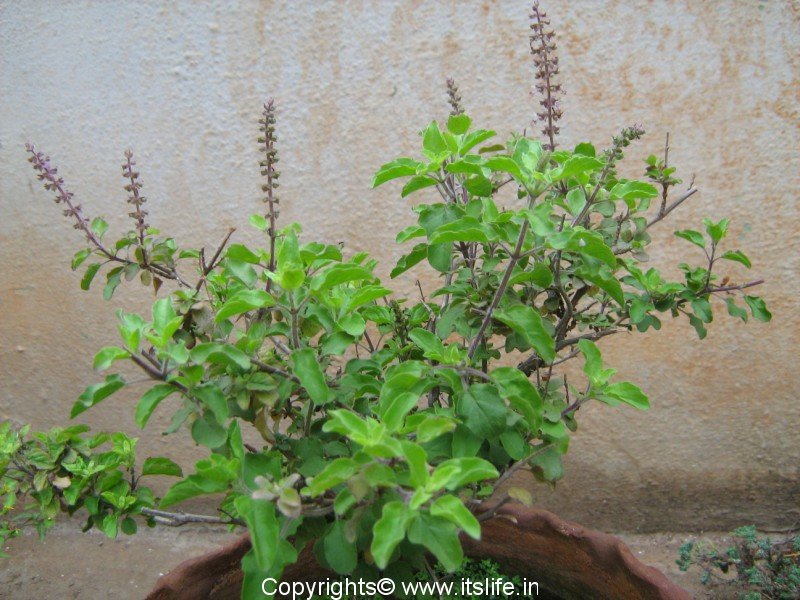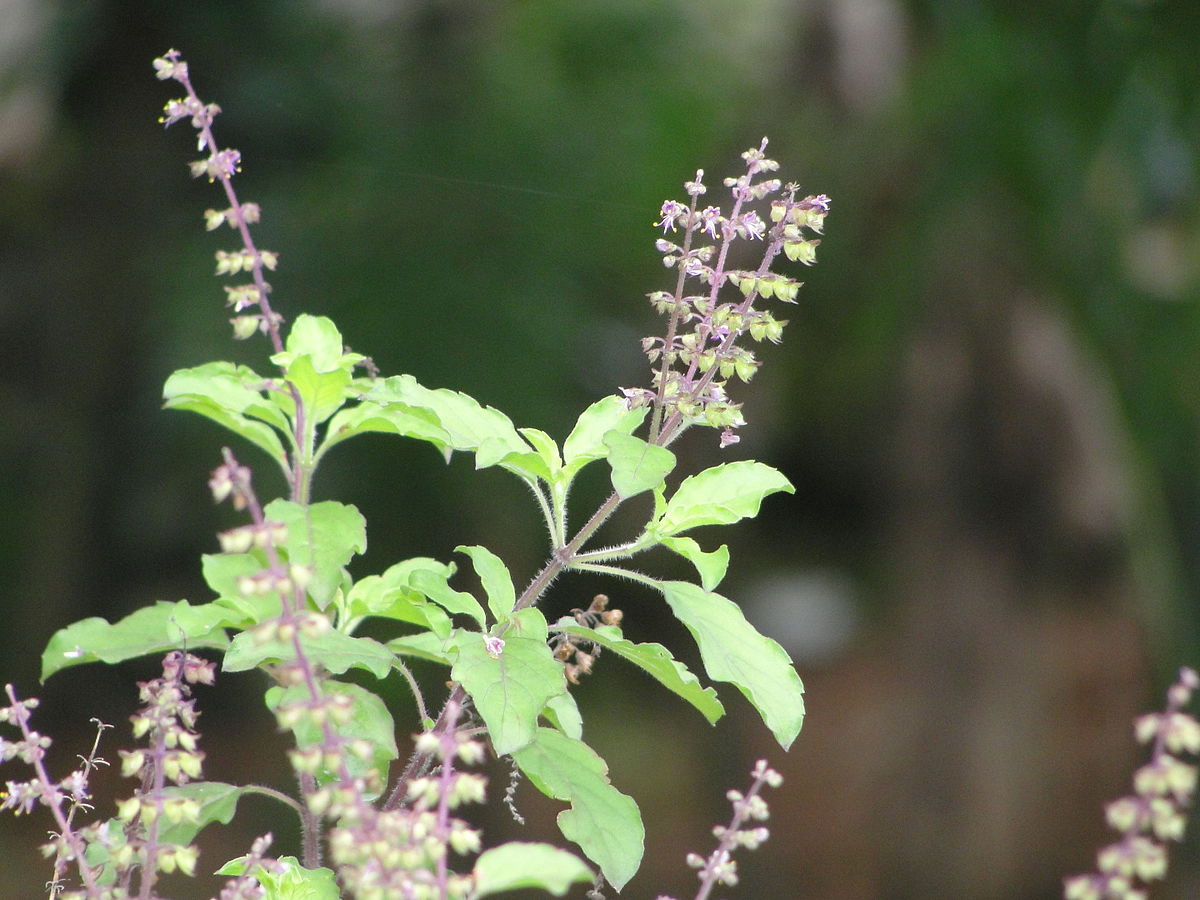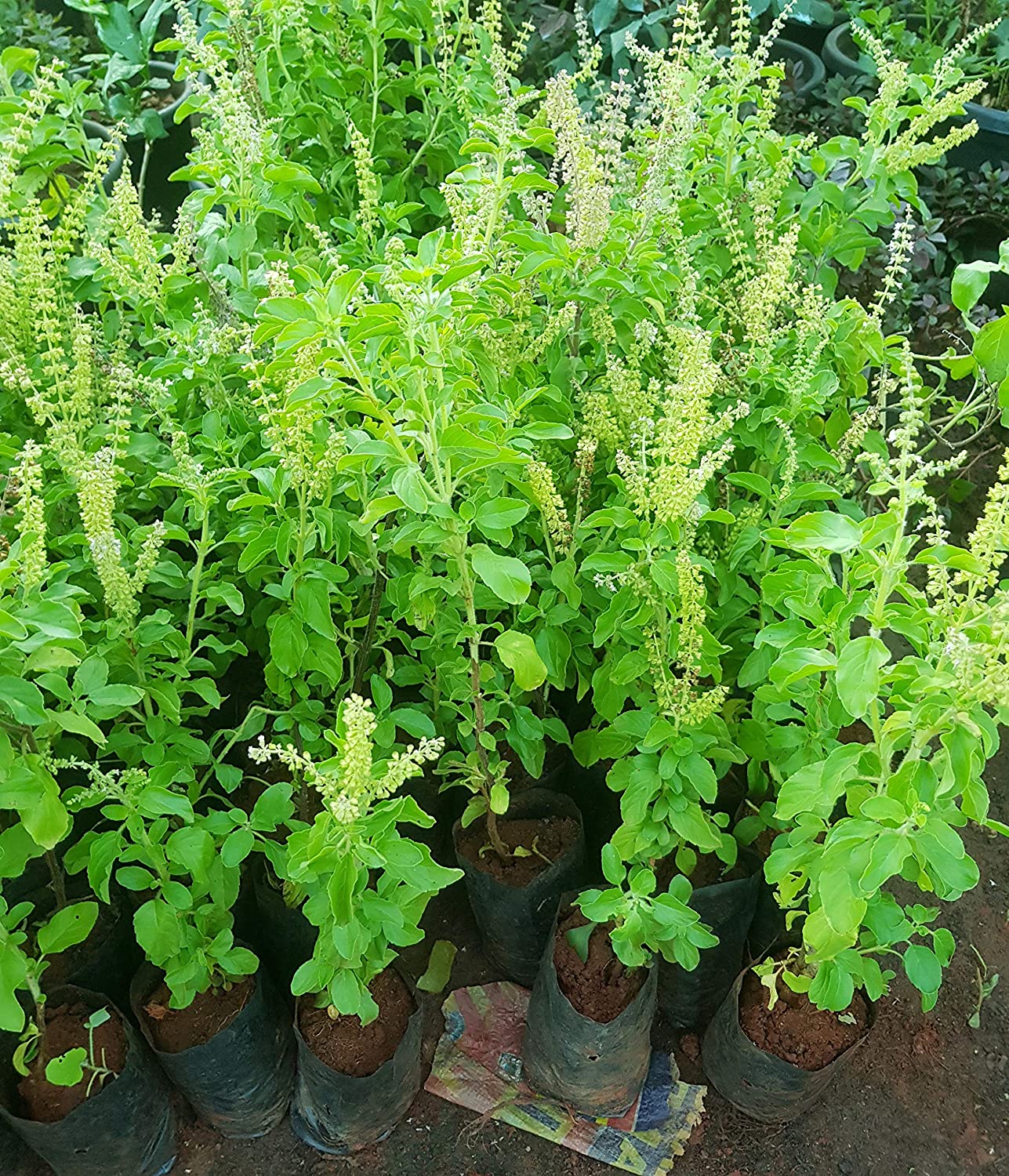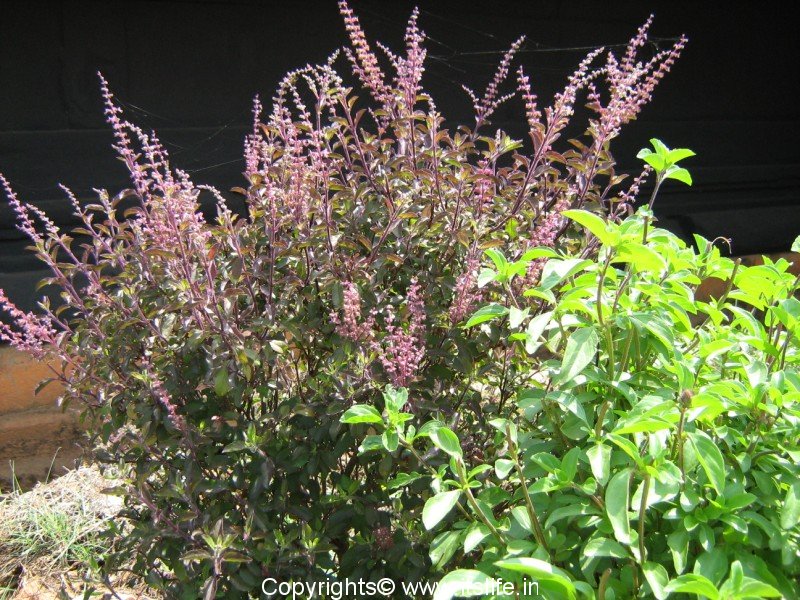
तुलसी के फायदे Tulsi ke fayde Benefits of Tulsi Sonia Goyal YouTube
Per some Hindu scriptures, Tulsi is an incarnation of the goddess Lakshmi. 3. A Tulsi plant releases ozone for a few hours a day. 4. The Tulsi plant has many medicinal uses and is called the "Queen of the Herbs". 5. Tulsi plant eliminates Vastu dosha and, to some extent, repels black magic also.

Food for thoughts How to wear tulasi (Kanti) mala
Tulsi Puja: The Tulsi plant is considered highly sacred. It is believed that the Tulsi plant is the abode of Goddess Lakshmi. In homes where Tulsi plant is present and regularly worshipped, the blessings of Goddess Lakshmi and Lord Vishnu are believed to reside. If you have planted a Tulsi plant in your home, it is essential to follow certain.
_Holy_Tulasi_plant_at_Kakinada_02.jpg)
File(Ocimum tenuiflorum) Holy Tulasi plant at Kakinada 02.jpg Wikimedia Commons
'Wedding of Tulasi'), [2] also called Tulasi Kalyanam, [3] is a Hindu festival, in which a symbolic ceremonial wedding takes place between a tulasi plant or holy basil (the personification of Lakshmi) and a shaligrama or an amla branch (the personifications of Vishnu ).

Tulasi Holy Basil Ocimum Sanctum Tulasi Pooja
Another Goddess, Lakshmi, is also closely associated with the Tulsi plant, and it is said that for those who wish to have a prosperous and peaceful life, this plant is an absolute must in the household. But there isn't just one kind of Tulsi, there actually are two; the lighter Rama Tulsi and the slightly darker Shyama Tulsi. It is the Shyama.

Imagem relacionada Thulasi Plant, Plant Care, Tulsi Plant Images, Plant Decor Indoor, Indoor
Use a pair of sharp garden shears and cut a tulsi stem from an established plant. Remove all the flowers and most the leaves. Place the cutting in a glass of water on a sunny windowsill. Make sure it's kept continually warm, and change the water every few days to avoid mold or stagnation.

Four Types of Tulsi Plants in India
Tulsi Vivah Ocimum holy basil, ( Ocimum tenuiflorum ), flowering plant of the mint family ( Lamiaceae) grown for its aromatic leaves. Holy basil is native to the Indian subcontinent and grows throughout Southeast Asia.

‘climate change’ ,derive benefit from medicinal plantTulsi Jharkhand State News
Tulasi is a sacred plant for Hindus, particularly the Vaishnavite sect. It is worshipped as the avatar of Lakshmi, [citation needed] and is often planted in courtyards of Hindu houses or temples to Hanuman. The ritual lighting of lamps each evening during Karthik includes the worship of the tulsi plant.

Karthika dhwadhashi puja Goddess decor, Pooja room design, Tulasi plant
Also known as 'Rama Tulsi', Sri or Lakshmi Tulasi, Ocimum tenuiflorum, Ocimum sanctum, the Green Leaf Tulsi is known for its cooling, mellower taste. This variety of Tulsi is found in China, Brazil, Eastern Nepal, as well as in Bengal, Bihar, Chatgaon, and the southern states of India. All the parts of the plant emit a strong aroma.

Tulasi salagrama vivaha Tulsi vivah, Tulsi, Tulsi plant
Krishna Tulasi, Rama Tulasi, Lakshmi Tulasi, Vana Tulasi, Karpoora Tulasi, Rudrajata Tulasi and so on. Tulasi is not a seasonal plant. It is a perennial plant whose flowers are available throughout the year. Generally, Tulasi plant will be green or light red colour and emanates pleasant fragrance, astringent in taste and grows up to 100 cm. in.

Buy Earth AngelsLive Lakshmi Tulasi Rama Tulsi Holy Basil Ocimum tenuiflorum Green Herbal 1
Tulasi ( Sanskrit: तुलसी, romanized : Tulasī ), or Vrinda ( holy basil) is a sacred plant in Hindu tradition. Hindus regard it as an earthly manifestation of the goddess Tulasi; she is regarded as the avatar of Lakshmi, and thus the consort of the god Vishnu. In another iteration, as Vrinda, she is married to Jalandhara.

Sree Lakshmi Tulasi Auspicious Plant Exotic Flora
According to astrology, it is believed that the goddess Lakshmi resides in the Tulsi plant and worshipping the holy plant makes the Goddess show her utmost blessings to her devotees. Keeps all the negative energy away . Keeping the Tulsi plant helps to keep all the negative energy away. Since the plant is considered to be auspicious, it brings.

The Worship of Srimati Tulasi Devi
The Devi Bhagavata Purana regards Tulsi as a manifestation of Goddess Lakshmi, the goddess of wealth and principal consort of Vishnu. Once upon a time, King Vrishadhvaja—a devotee of the god Shiva—banned worship of all other deities except for that of his patron god,Shiva.

Lakshmi tulasi AND Krishna tulasi YouTube
Tulasi is also known as Holy Basil, it is considered as the Queen of Herbs, it is an aromatic perennial plant in the Lamiaceae family. It is native to the Indian subcontinent and widespread as a cultivated plant throughout South-East Asia. It is cultivated for religious and traditional medicine purposes, and also for its essential oil.

Tulsi The Sacred plant of India Khichdi Online just about everything
Rama tulsi is also known as Sri or Lakshmi Tulasi, Ocimum tenuiflorum, Ocimum sanctum, and green leaf tulsi (Basil). The Rama tulsi emits a strong aroma from its every part. It is also found in Eastern Nepal, Brazil, China, as well as in Bengal, Bihar, Chatgaon. Rama Tulsi is widely famous for its cooling taste. Vana Tulsi or Wild Leaf Basil

Tulasi Holy Basil Ocimum Sanctum Tulasi Pooja
In the scriptures , the Tulsi plant has been described as the form of Lakshmi, that is, where there is Tulsi, there is always the arrival of Lakshmi. It is a wonderful medicinal plant. By planting.
.jpg)
Hindu Station Lakshmi Devi
Tulasi is also known as Holy Basil, it is considered as the Queen of Herbs, it is an aromatic perennial plant in the Lamiaceae family. It is native to the Indian subcontinent and widespread as a cultivated plant throughout South-East Asia. It is cultivated for religious and traditional medicine purposes, and also for its essential oil.